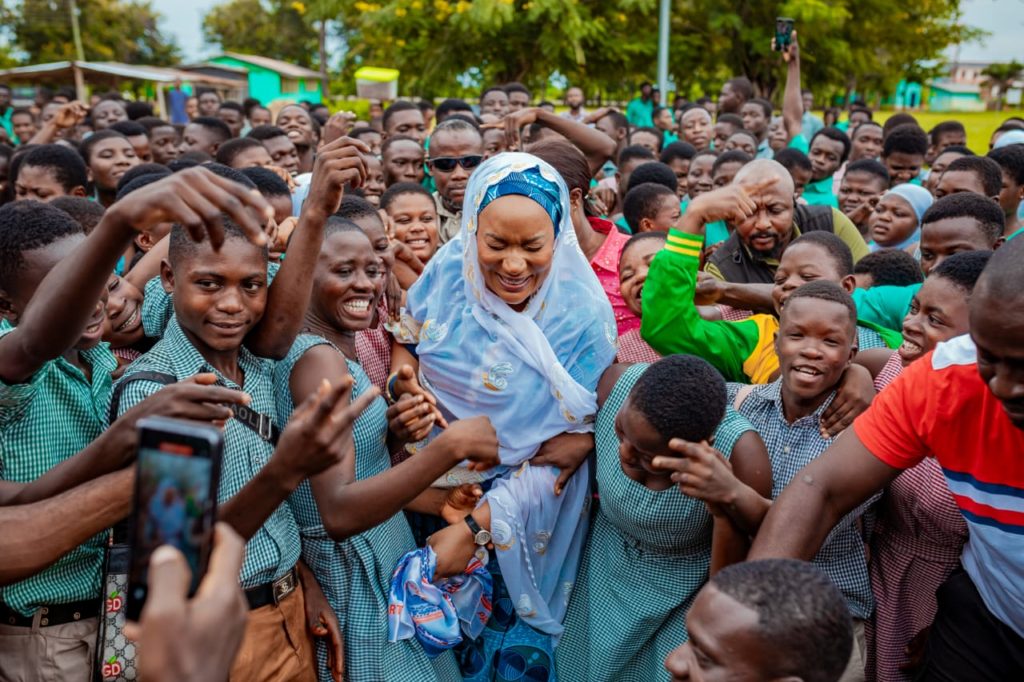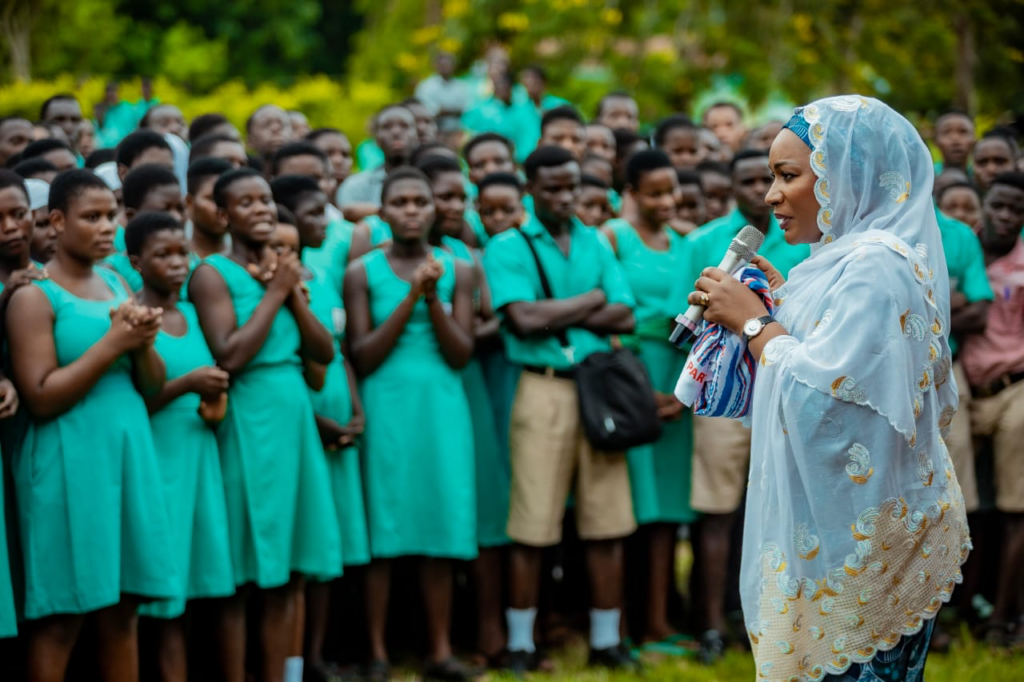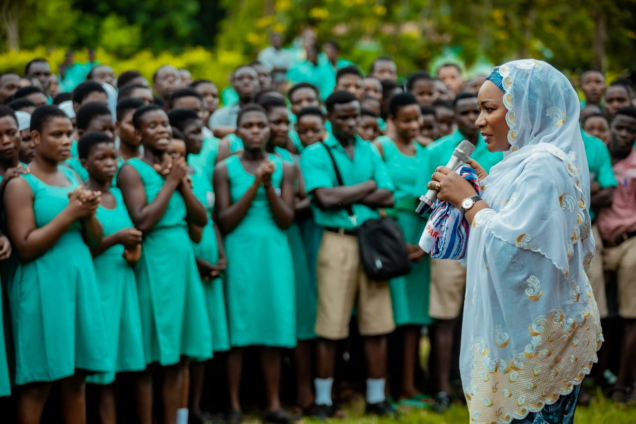As we look to the future, the profound impact of Ghana's Free SHS policy in economically deprived regions, such as Oti, is a beacon of hope and progress. Accompanying the wife of the Vice President, Samira Bawumia, on her recent tour through Oti's nine constituencies - Jasikan, Kadjebi, Nkwanta North, Nkwanta South, Krachi East, Krachi Nchumuru, Krachi West, Biakoye, and Guan - it became clear to me that the policy is not only changing individual lives but also reshaping the entire socio-economic landscape of these areas.
The sight of so many girls in senior secondary and technical schools is a testament to the policy’s success. In communities where educational opportunities were once scarce, young women now have the chance to pursue their dreams and build a better future.

This shift is crucial for the region’s development, as educated girls are less likely to face teenage pregnancies, forced marriages, abuse, and abandoned dreams. They are more likely to enter the formal sector, drive economic growth, and lead change within their communities.
The ripple effects of this educational revolution are already being felt. Families are seeing the long-term benefits of keeping their daughters in school, and communities are witnessing a gradual transformation.
As more girls receive education, the cycle of poverty that has plagued these regions for generations is breaking. These young women are not just students; they are future leaders, entrepreneurs, and innovators who will contribute to the economic growth and stability of their communities.
The economic potential unlocked by educating girls is immense. As they enter the workforce, these young women will bring fresh perspectives and skills, fostering innovation and driving sustainable development. Their participation in the formal sector will lead to increased household incomes, improved health outcomes, and greater overall well-being for their families and communities.
Looking ahead, the future of Oti and similar regions is brighter than ever. The Free SHS policy has laid a strong foundation for continuous progress. To sustain this momentum, it is essential to invest further in educational infrastructure, provide adequate resources, and support programs that encourage girls to pursue higher education and vocational training.

The Free SHS policy is more than an educational initiative; it is a catalyst for comprehensive socio-economic development. By empowering young women through education, Ghana is paving the way for a future where every child, regardless of their economic background, has the opportunity to succeed and contribute to the nation’s prosperity.
The journey ahead is filled with promise, and the next generation of educated, empowered women will lead the charge towards a more equitable and flourishing Ghana.
Latest Stories
-
Samer Chedid succeeds Mauricio Alarcón as CEO of Nestlé Central and West Africa
18 minutes -
Stephen Ntim takes temporal break as NPP Chairman due to health concerns
41 minutes -
Abolish ‘Additional Judge’ practice in lower courts – Justice Dennis Adjei urges
1 hour -
District assembly elections are already partisan – Sir Dennis Adjei urges reform
1 hour -
Africa World Airlines reschedules Accra–Ouagadougou route launch to 1st July
2 hours -
Mahama vows to reignite dream of Bukom Boxing Academy
2 hours -
Once I put on my judicial cap, my faith has nothing to do with judgement – Supreme Court nominee
2 hours -
LGBTQ: Judges must uphold the law, not personal faith – Justice Dennis Adjei
2 hours -
“If you cannot marry at 16, why sex at 16?” – Justice Adjei punches holes in Ghana’s laws
2 hours -
Criminalise falsehoods online just like offline offences – Sir Dennis Adjei backs misinformation law
2 hours -
Rain‑soaked Accra turned electric as ‘3 Faces of Jeffrey Nortey’ sold out National Theatre
2 hours -
Justice Dzamefe backs AI, virtual courts to tackle delays in justice delivery
2 hours -
First National Bank Ghana receives $35m capital injection to accelerate growth, lending capacity
2 hours -
2025 NCAA Champs: Rose Yeboah wins silver with season’s best jump
3 hours -
AI alone cannot fix judicial system without integrity – Ansa-Asare
3 hours

